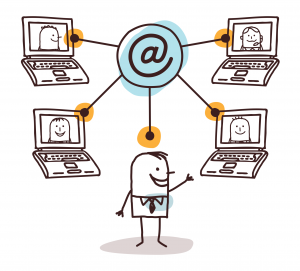
3 Reasons Why You Should Care About Data Onboarding
Data onboarding is transferring all your offline data about customers to the digital world – either to your CRM system or your marketing databases. Although data onboarding is not a new topic, most of the concepts and its applications to real life are not yet understood well by most of the marketing experts and entrepreneurs.
 Finding out customers offline purchases and matching them with online marketing campaigns made sense to the first eCommerce platforms. When a customer just bought something from you, it doesn’t make sense to create online ads that target the same product which they bought the next day. The smart marketers use offline data to learn about habits of retail customers and create smarter marketing segments.
Finding out customers offline purchases and matching them with online marketing campaigns made sense to the first eCommerce platforms. When a customer just bought something from you, it doesn’t make sense to create online ads that target the same product which they bought the next day. The smart marketers use offline data to learn about habits of retail customers and create smarter marketing segments.
However, data onboarding has also become essential for companies who do not deal with retail and physical selling too. Data onboarding is critical in both CRM and marketing activities of your own company. Although it may seem that data onboarding is complex and involves a lot of technology, it is not the case. Most of the customer data is already stored online. And for offline databases such as call centers, there are already ready-made solutions available in the market.
If your customers use a mobile device, you can analyze what kind of websites they visited before encountering an article on your website. Mobile applications are able to identify a key associated with the hardware. Your IP address and geolocation can also determine your online behavior. Onboarding systems match your offline (mobile and web) activities with the associated customer and then remove a customer’s identity for privacy concerns. You can then be able to analyze users’ behavior before landing to your website.
Some time ago, Google launched custom audiences solution which allows advertisers to upload email lists of the leads and customers to Google and to target them with specific ads. This was a massive move towards making data onboarding topic number one importance again. Before Google, Facebook already had a solution available to attract custom audiences through Facebook advertising platform.
 There are other solutions available on the market, which you can use to segment your audiences. You can upload customers information like email and physical address to a platform, then, the system matches the identifier information with information in mobile devices, with its own offline databases and then the identifier information is removed for privacy. You can then use the data for intelligent segmentation and targeting your audience.
There are other solutions available on the market, which you can use to segment your audiences. You can upload customers information like email and physical address to a platform, then, the system matches the identifier information with information in mobile devices, with its own offline databases and then the identifier information is removed for privacy. You can then use the data for intelligent segmentation and targeting your audience.
There are several types of data which you can onboard: offline data about the customer and online data about your prospects and leads. What kind of data is worth being onboard for small businesses?
Event transactions – if the customer has made a purchase from you, most probably it is recorded in another system, or offline. If you recorded it from a different system, you should ask vendors to export it for you.
Phone conversations – if you are not recording phone conversations with customers, you should. If you do not have technical resources to record every call you have with a customer, you should take a note of customer service calls and record it in your CRM system.
Demos and presentations – personal demos are powerful because they make you understand the customer, their questions, and their concerns while you are presenting them your product physically.
There are three key reasons why smart digital marketers should care about data onboarding.
Offline data is bigger than you think. If you are in retail business, 90% of all transactions go offline. If you are in consulting service business, all your interactions with customers including phone calls and meetings happen offline. All essential trade-shows and conferences happen offline. Thankfully, nowadays, most conference attendees are scanned, swiped, badged, and identified before the entry. If you want to create buyer personas for your marketing campaigns, there is no way to analyze the behavior of the customer without seeing the offline data. When offline data is onboarded, you can see the broader picture of the behaviors of your buyers.
You need to analyze the source of the conversion. If you have ads both in online and offline medium, you will have to analyze which medium was effective before making the most marketing decisions. Smarter marketers analyze the data from different segments including offline and online.
Switch product goals with customer goals. Smarter marketers analyze the users’ behaviors that are covered beneath the surface. Knowing what kind of business goal or a personal goal your potential customer is trying to achieve before encountering your solution is a huge asset for marketers. Offline data helps to create need-based segments from users’ point of view.